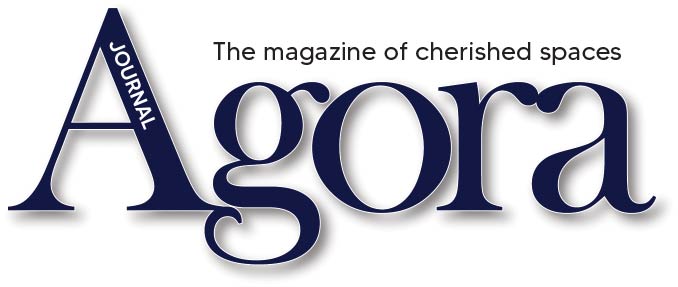The UK government announced on 3rd July that 20 organisations in England will benefit from £60 million to protect the UK’s national heritage for future generations.
- From ancient objects to palaces, observatories and accessible toilets, projects are underway to maintain our historic national institutions and increase accessibility
- Funding will support projects to welcome back visitors this summer
Museums, galleries and heritage organisations have been awarded £60 million to ensure nationally important museum collections and heritage assets are protected for future generations.
The funding, which has been awarded to organisations including the V&A, The Natural History Museum and the British Library has supported 100 projects for essential maintenance works delayed by the pandemic. It will help projects that were stalled due to the Covid-19 pandemic reach completion to allow institutions to welcome back visitors this summer.
It will increase accessibility at national tourist attractions including the Royal Armouries in Leeds and the National Science and Media Museum in Bradford. The funding will also help organisations meet net-zero targets by supporting energy efficiency projects at The Royal Armouries, providing grants for electric boilers at the Imperial War Museum Duxford in Cambridgeshire, and upgrading insulation at Tate Liverpool.
This £60 million investment in some of the nation’s beloved institutions builds on the almost £2 billion invested in the arts, heritage and cultural sectors through the Culture Recovery Fund, which has supported more than 5,000 organisations through the pandemic.
Culture Secretary Oliver Dowden said: “We’ve given £60 million to safeguard the priceless collections and heritage at many of our beloved cultural institutions so they can be enjoyed by future generations. This builds on our £2 billion Culture Recovery Fund, ensuring that we continue to protect our heritage and culture throughout this pandemic and are able to open up our historic institutions for everyone to enjoy this summer.”
A grant of £9.8 million has gone to the world-famous British Museum for essential maintenance work which will ensure the Museum’s priceless collections are preserved for future generations. £2.7 million of this will care for the fabric and roofs of galleries.
London’s Natural History Museum will receive £4.6 million to restore the original Waterhouse Wing, home to the Human Biology Galleries that chart the origins and evolution of humanity. More than £1 million will help the V&A in London preserve the unique terracotta facade of the Grade I listed garden courtyard building and £800,000 will help the Walker Art Gallery, part of National Museums Liverpool, preserve the ornate sandstone cornice that adorns the gallery’s entrance.
As well as galleries and museums, funding is also helping organisations including The Royal Parks whose green spaces were enjoyed by Londoners during the pandemic. £2.2 million will maintain footpaths, create nature habitats, protect parkland and landscapes, and repair boundary walls and bridges. It will help parks including Richmond, Bushy, Greenwich, St James’s, Brompton Cemetery and Hyde Park welcome visitors for years to come.
Funding has also been awarded to public bodies to help their efforts to hit net-zero targets. Decarbonisation projects have been funded at the Imperial War Museum in Duxford, the National Gallery, the Natural History Museum and Science Museum Group sites in Manchester and York. From upgrading lighting to LED systems which will reduce consumption by up to 70%, to insulating roofs and enhancing glazing, work is underway across our national institutions to build back greener.
Recipients include the Royal Armouries in Leeds whose £1.1 million grant is being used to build a changing places toilet that will open up facilities at the museum for people who have complex needs. The new facilities will include generous space for wheelchair users and allow space for users to be accompanied by carers and height adjustable wash basins and changing benches. More than £350,000 will go to the National Science and Media Museum and the Museum of the Home to reconfigure entrances and modernise lifts to make both sites more accessible.
The Horniman Museum and Gardens will receive £510,000 to fund essential upgrades to its buildings, along with significant investment in infrastructure.
Hartwig Fischer, Director of the British Museum said:”Over the coming years significant investment in the BM estate is required to maintain appropriate conditions for the collection, improve public access, and ensure long-term sustainability. We are very grateful indeed for the additional support we have received from the Government. It enables us, at a difficult time, to progress essential work on our building fabric and infrastructure, to keep the Museum safe and allow us to welcome visitors back.”
Jonathan Newby, The Science Museum Group’s Acting Director and Chief Executive said: “This government funding is vital to our work to reduce our carbon footprint and ensure our museums are accessible and welcoming to everyone who visits. Investment in our infrastructure underpins the inspiring experiences we offer in our museums; the platform lifts being replaced at the National Science and Media Museum were part of an award-winning approach to accessibility when installed two decades ago, but aren’t suitable for some modern wheelchairs.”
Tristram Hunt, Director of the V&A said: “The Infrastructure Fund has provided critical support to the V&A, enabling us to repair some of the most vulnerable parts of our Grade 1 listed building. Not all of these projects are glamorous, but they are essential and the funding we have received means we can continue to provide public access to some of the most beautiful and best-loved parts of our estate – including the terracotta Garden façade.”
Diane Lees, Director-General of Imperial War Museums said: “This welcomed support from the Government will help IWM to pursue our goal of achieving net zero greenhouse emissions by 2050, in line with the UK Government’s de-carbonisation timeline. The funds will enable us to invest in the removal of fossil fuelled heating across our estates in favour of decarbonising infrastructure, such as electric boilers supplied wholly by UK renewable green zero carbon energy, and to work towards becoming an environmentally sustainable organisation. These important changes may not be visible to our visitors, but they are crucial to us being able to care for our sites and collections sustainably.”
Doug Gurr, Director of the Natural History Museum said: “We are very grateful for this support which will be vital in sustaining our estate and collections for future generations and support our drive to become net zero. In particular, it will enable us to reveal and celebrate more of our architectural heritage by renewing the Western Waterhouse galleries roofs which cover galleries in the oldest part of our Grade 1 listed world-famous Waterhouse building – as well as making our building more energy efficient and reducing our impact on the environment.
Dr Edward Impey, Director General and Master of the Armouries said: “We are delighted to be able to invest a substantial sum in the infrastructure of the Royal Armouries Museum at Leeds. One of the improvements this makes possible is the installation of a ‘Changing Places’ toilet, a gold standard facility for the use of people with severe disabilities, including those with profound and multiple learning difficulties. This will not only be of value to visitors and provide a public service during opening hours, but encourage more people to visit the museum and explore Leeds Dock and the South Bank area of Leeds city centre.”
Tom Jarvis, Director of Parks at The Royal Parks, said: “We are very grateful to receive this government funding which will help us protect and improve the landscapes of the parks, particularly where they have become so eroded in the last year. Part of the funding will also go towards increasing the parks’ biodiversity through the creation of new nature and wildlife habitats, and a significant amount will go towards repairing and maintaining the historic boundary walls, bridges and reservoirs. The parks have been a lifeline for many during the pandemic, and this funding will help make sure that their natural and historic landscapes continue to be enjoyed safely by visitors now and in the future.”
Paddy Rodgers, Director of Royal Museums Greenwich said: “This additional funding from Government will help Royal Museums Greenwich to provide vital services across our wide and varied estate – including the National Maritime Museum, Royal Observatory, Queen’s House and Cutty Sark – and support essential infrastructure that will underpin our plans to rebuild our audiences as we emerge from the pandemic.”
Kirsten Walker, Director, Collections Care and Estates at the Horniman Museum and Gardens says: “We are really grateful to the DCMS for this funding, which is supporting much needed infrastructure refurbishment, which would be difficult to fund from other sources.”
The £60 million Public Bodies Infrastructure Fund aim is to enhance public access to national heritage and collections, and maintain much-loved historic buildings nationwide.
The additional funding builds on an unprecedented package of support for public bodies through the pandemic. National museums, galleries and heritage organisations have received approximately £100 million in additional grant in aid support from DCMS to offset the financial impact of the pandemic. An additional £90 million was announced by the Chancellor at Budget for continued support for government-sponsored national museums and cultural bodies in England.
Funding was awarded via a competitive process and recognises the impact of the pandemic on commercial revenue streams and cyclical planned maintenance.
Full list of recipients:
- The British Museum – £9,800,000
- Natural History Museum – £7,605,000
- Science Museum Group – £6,171,000
- V&A – £5,788,000
- TATE – £5,042,000
- Imperial War Museums – £3,850,000
- National Museums Liverpool – £3,800,000
- Historic Royal Palaces – £3,560,000
- National Portrait Gallery – £2,968,810
- The Royal Parks – £2,255,000
- Royal Museums Greenwich – £1,775,000
- British Library – £1,301,249
- Royal Armouries – £1,138,000
- British Film Institute – £1,075,000
- National Coal Mining Museum – £1,000,000
- Wallace Collection – £575,000
- Horniman Museum and Gardens – £510,000
- National Gallery – £437,000
- Sir John Soane Museum – £242,000
- Museum of the Home – £175,000






